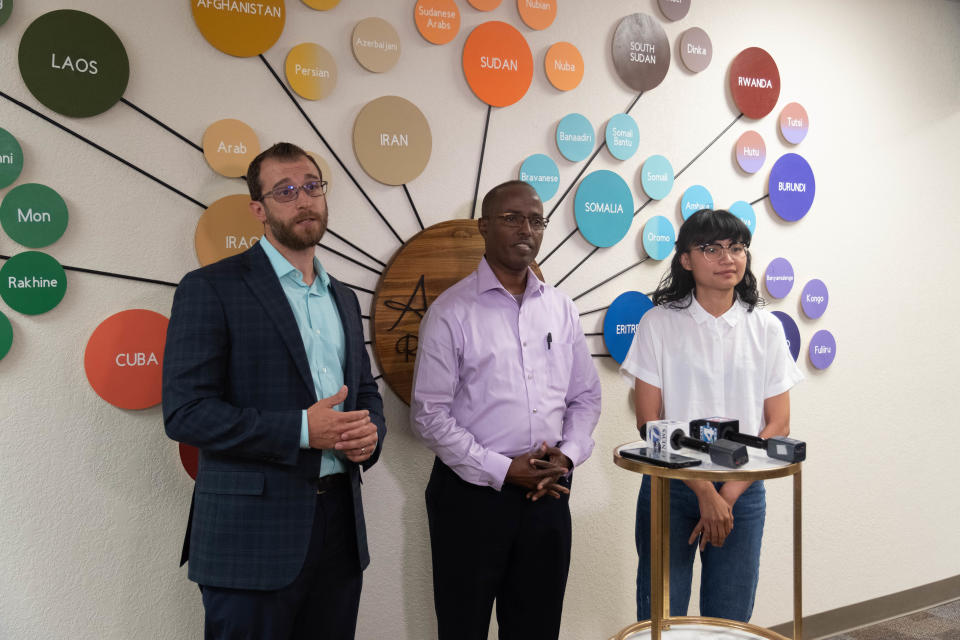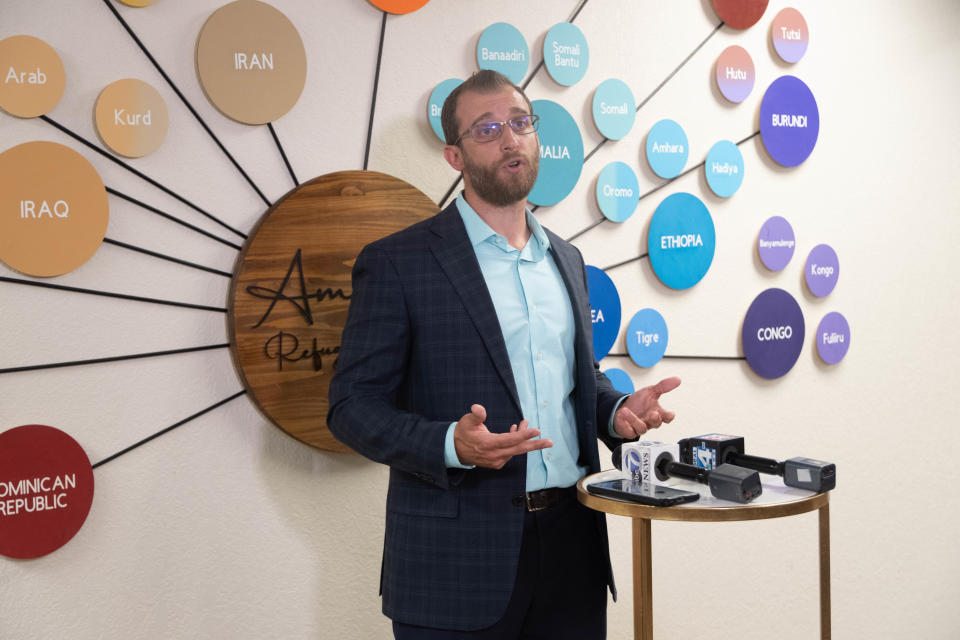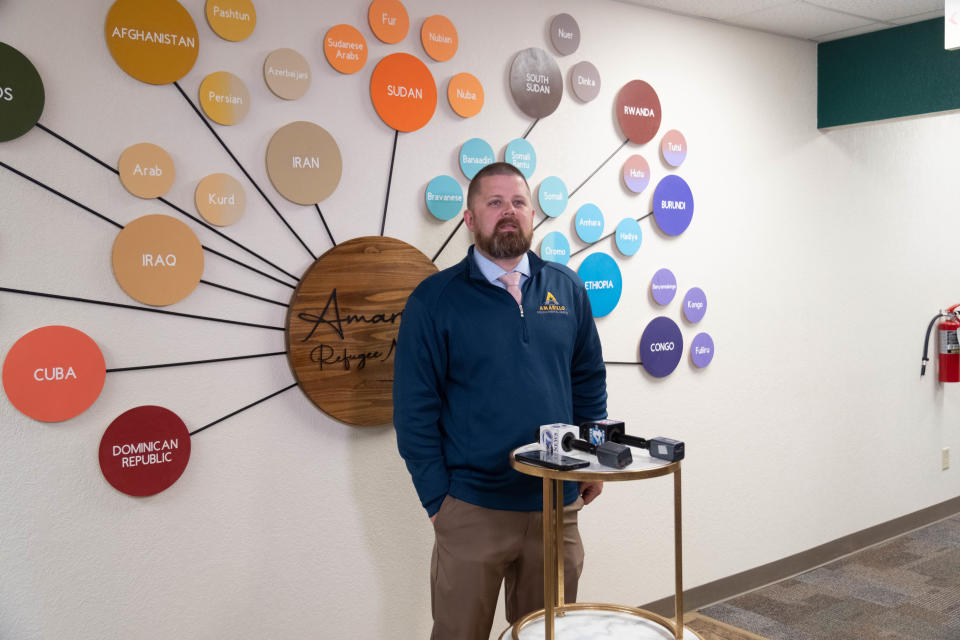Bridging the language barrier: Amarillo to offer food handling program in Burmese, Somali
The city of Amarillo’s Environmental Health Department held a news conference Thursday announcing that it was expanding its food handling training to two additional languages.
Due to Amarillo being known as a refugee haven for the number of refugees who were taken into the community from 2007 to 2017, this program is designed to familiarize two of the larger populations of immigrants with an opportunity to become certified food handlers.
Before former President Donald Trump made severe reductions to the refugee settlement program in 2017, Amarillo had taken in the highest per capita of refugees in the state of Texas and among the highest in the nation. Nearly 7,000 refugees were resettled in Amarillo, with a significant number coming from Myanmar and Somalia.

To make it easier for many immigrants from these regions, the Environmental Health Department will offer free online certified food handler training in Burmese and Somali languages, to take the language barrier out of the equation for those seeking employment or business in these areas. These services will be available for a limited time for free, for at least the following year.
Those employed in the food industries included in the Food Safety Program may involve restaurants, food banks, grocery stores and convenience stores.
“The city of Amarillo is excited to be able to offer this unique training program,” said Director of Environmental Health Anthony Spanel. “This is the first time the city has provided this particular service option in these languages. Amarillo has a large and diverse population, which includes many languages. We are hopeful that the success of this training program leads to an expansion into even more languages and different training options.”

Spanel said that this unique program was made available by the city’s request for a federal grant from the Food and Drug Administration. He said the course has historically only been available in English, Spanish and sometimes Chinese. About 1,000 people in the community is a target for this course, according to Spanel, especially with new food handling regulations passed down by the state of Texas in 2015.
“This program is a result of the city seeing a great need in the community for many immigrants faced with a language barrier for this training,” Spanel added.
Ryan Pennington, executive director and founder of the Refugee Language Project in Amarillo, spoke about the need for this training in the city.
He stated that after speaking with refugee communities, his group saw a great need for this training in the food business, especially in grocery stores, small markets, small farms and other businesses of this nature.

“This feels like a very good first step in taking one large language barrier away as a pathway to help refugees integrate successfully in the city,” Pennington said. "One issue that we commonly face is that when you grow up running a small market in another former country, maybe the standards that you conducted with your business, there are different than what the laws allow in the United States.”
Salad Dulle, a Somali interpreter with the refugee language program, said that from his experience that many Somalis that have relocated here come from food-related businesses in their native country.
“Language is the biggest barrier to be able to get certified in food handling,” Dulle said. "If they have the capability to take the course in their own language, it will be very beneficial.”
If this program is successful, according to Spanel, there may be plans to include more languages in the coming years.
“The more people we can serve and the more training that can be provided by eliminating language barriers benefits the entire Amarillo community,” Spanel said.
For more information, go to https://www.responsibletraining.com/catalog?pagename=City-of-Amarillo .
This article originally appeared on Amarillo Globe-News: City of Amarillo to offer food handling program in Burmese, Somali

